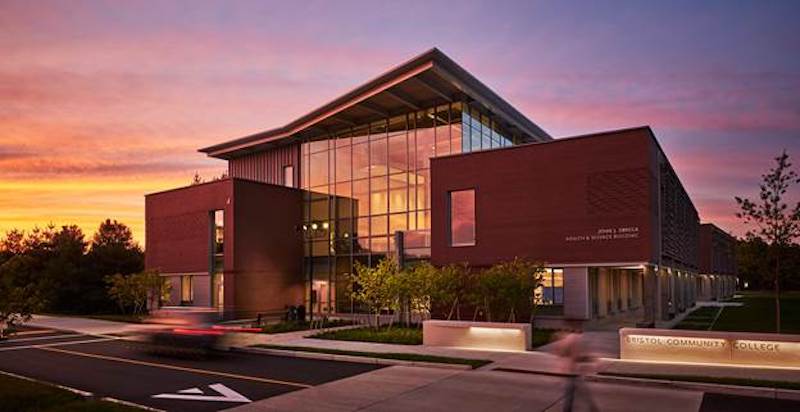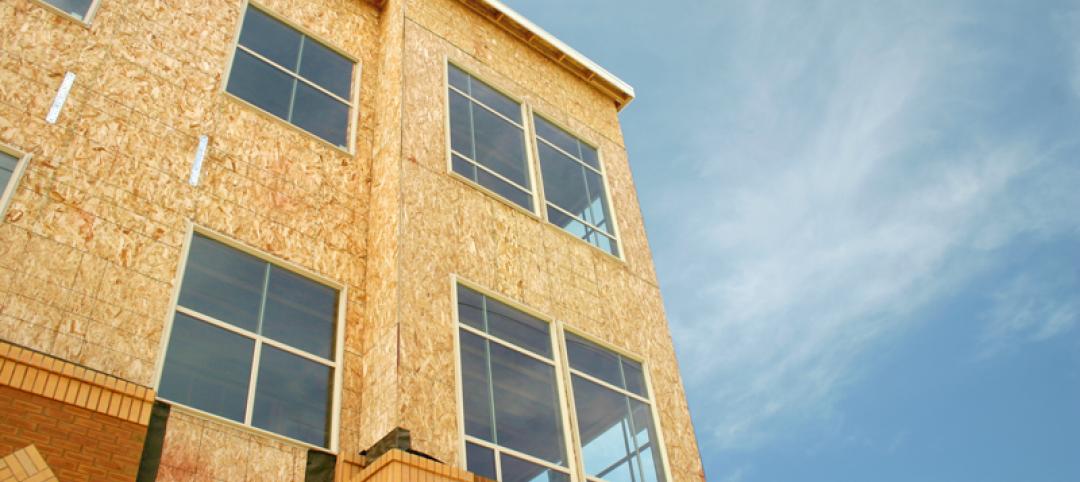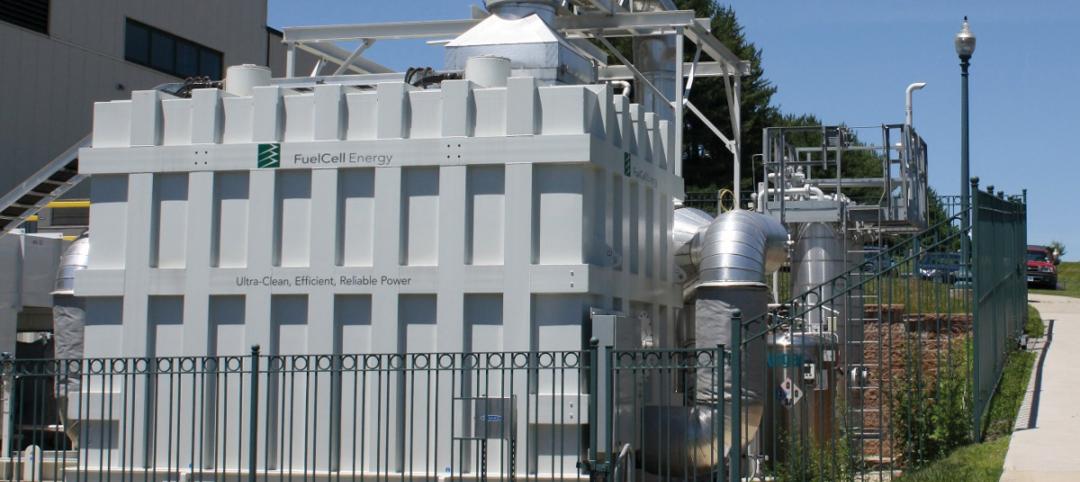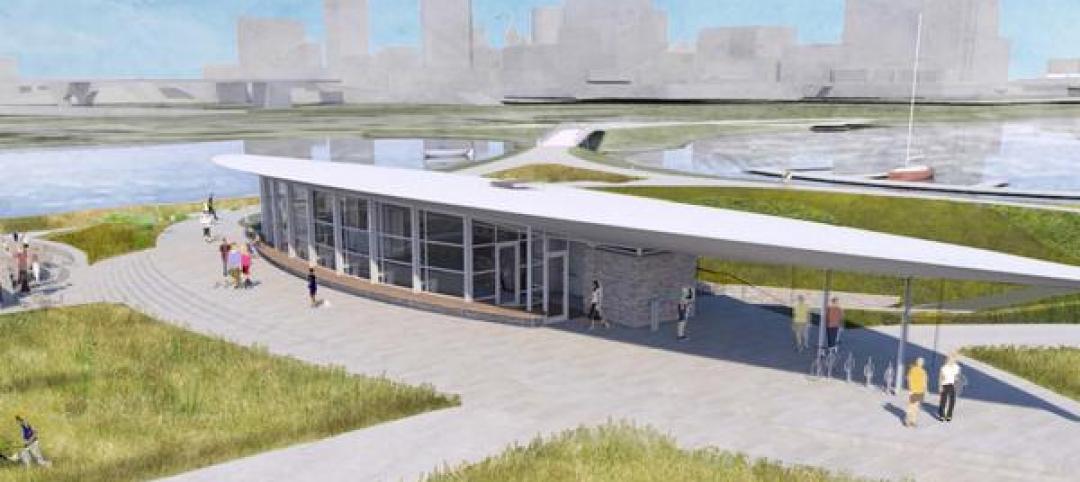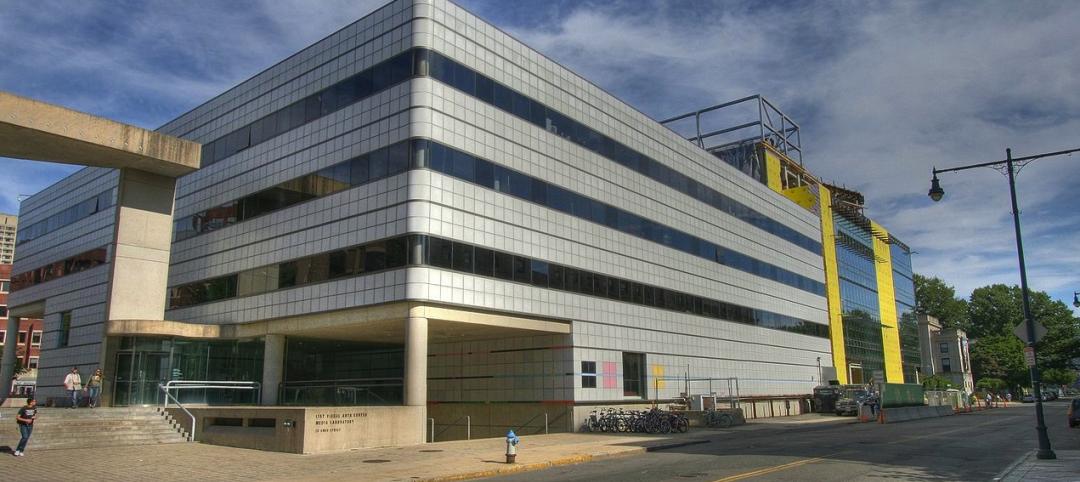The John J. Sbrega Health and Science Building, which opened last fall on the Fall River, Mass., campus of Bristol Community College (BCC), claims to be the largest zero net energy (ZNE) classroom and science lab building in the Northeast.
The 50,600-sf building, whose construction cost was $31.5 million, consists of two occupied floors and a mechanical penthouse. Its teaching laboratories, community spaces and interactive classrooms, are joined by a shared atrium that serves as a “learning commons” and student living room.
The Building Team on this project included the civil engineering and construction firm Bond (GC), Bard, Rao + Athanas Consulting Engineers (engineer), and Sasaki Associates (architect).
To achieve zero net energy goals in a facility with a large amount of energy consuming lab space, the design incorporates a large solar array field over the adjacent parking lot that works in tandem with a PV array on the roof of the building. The new facility is projected to use less than 20% of the new array and no fossil fuels for heating and cooling.
The Building Team also installed geothermal wells 500 feet below ground level that feed a ground source heat pump. This was coupled with an air source heat pump to provide heating and cooling to the building. In addition, 12 of the building’s 16 fume hoods filter and return air to the space, rather than exhausting it out into the atmosphere.
Significantly, the ZNE design was achieved without increasing the budget. The building will serve as an important benchmark for future campus development and a model for other institutions.
“We are especially proud of this new building for BCC, which has already received several awards for its innovative approach to sustainable construction,” said Robert Murray, Bond’s President. “It’s one of the first ZNE science laboratory buildings built in the Northeast and well equipped for the ever-changing needs of the college’s health and science curriculum.”
BCC, which was chartered in 1965, is one of the fastest-growing community colleges in the Northeast. The school offers more than 150 programs that include nursing, dental hygiene, biotechnology, microbiology, chemistry, and biology. The Health and Science Building—named after BCC’s president of 16 years, John J. Sbrega, who is retiring next August—brings much-needed new space to the burgeoning campus. It is LEED Platinum certified, and can be seen as a starting point for the college’s goal of achieving carbon neutrality by 2050.
On its website, Bond notes that one of this project’s challenges was the installation of three prefabricated mechanical room pieces, each 10 to 15 tons, that needed to be rigged through the structure, and placed during ongoing construction. Offsite commissioning, including control testing, allowed for plug and play of the mechanical room as well as critical control sequences.
Related Stories
Sponsored | Metals | Jul 20, 2015
Life cycle assessment, and why you should care
LCA is a way of quantifying the environmental impact generated by the manufacture and delivery of a product.
Sponsored | Energy Efficiency | Jun 30, 2015
Which Is More Efficient: Wood Walls or Steel and Masonry With Continuous Insulation?
By nature, wood has nearly four times the thermal resistance of steel or masonry
Sponsored | Transit Facilities | Jun 15, 2015
Success through teamwork for landmark California project
The Anaheim Regional Transportation Intermodal Center (ARTIC) is the Grand Central Station of the future
Green | Jun 9, 2015
Fuel cell technology makes its way into energy generation
Demand for fuel cells, while modest, is growing, and cost savings are getting noticed.
Cultural Facilities | Apr 16, 2015
Milwaukee’s Lakeshore State Park visitor center will be ‘off the grid’
The plans also include a built-in wastewater treatment system and rainwater collection.
Green | Apr 7, 2015
USGBC survey shows Fortune 200 companies prioritize green building
The world’s top-performing companies are prioritizing sustainability as part of their corporate social responsibility efforts, and a majority of them are using LEED to achieve their goals, according to the new survey.
Codes and Standards | Apr 6, 2015
DOE releases Better Buildings Workforce Guidelines
The guidelines are aimed at strengthening and streamlining commercial building workforce training and certification programs for workers in energy auditing, building commissioning, building operations, and energy management.
Energy Efficiency | Apr 2, 2015
C40 cities across the globe are making sustainability a policy
The U.S. Green Building Council and C40 Cities Climate Leadership Group with the World Green Building Council released landmark green building city market briefs highlighting sustainable building policies in 66 cities around the world.


